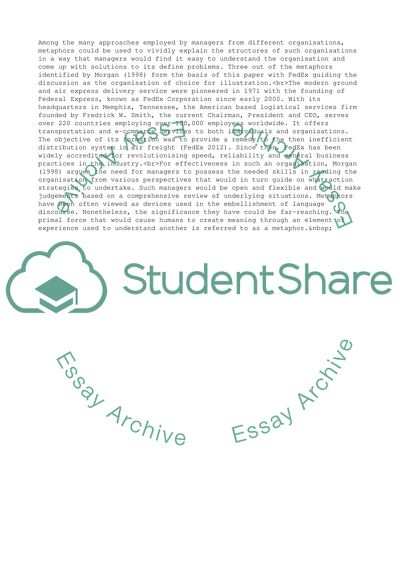Cite this document
(Organisation Behaviour in FedEx Research Paper Example | Topics and Well Written Essays - 3250 words, n.d.)
Organisation Behaviour in FedEx Research Paper Example | Topics and Well Written Essays - 3250 words. Retrieved from https://studentshare.org/management/1772429-organisation-behaviour
Organisation Behaviour in FedEx Research Paper Example | Topics and Well Written Essays - 3250 words. Retrieved from https://studentshare.org/management/1772429-organisation-behaviour
(Organisation Behaviour in FedEx Research Paper Example | Topics and Well Written Essays - 3250 Words)
Organisation Behaviour in FedEx Research Paper Example | Topics and Well Written Essays - 3250 Words. https://studentshare.org/management/1772429-organisation-behaviour.
Organisation Behaviour in FedEx Research Paper Example | Topics and Well Written Essays - 3250 Words. https://studentshare.org/management/1772429-organisation-behaviour.
“Organisation Behaviour in FedEx Research Paper Example | Topics and Well Written Essays - 3250 Words”, n.d. https://studentshare.org/management/1772429-organisation-behaviour.


